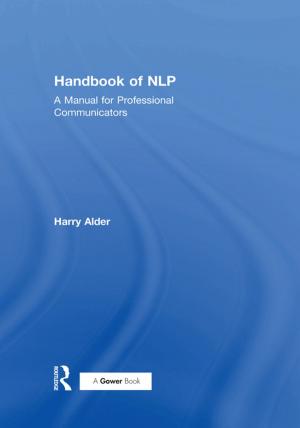| Author: | Lynn Holt | ISBN: | 9781317180036 |
| Publisher: | Taylor and Francis | Publication: | April 8, 2016 |
| Imprint: | Routledge | Language: | English |
| Author: | Lynn Holt |
| ISBN: | 9781317180036 |
| Publisher: | Taylor and Francis |
| Publication: | April 8, 2016 |
| Imprint: | Routledge |
| Language: | English |
This book introduces and explores the role of apprehension in reasoning - setting out the problems, determining the vocabulary, fixing the boundaries, and questioning what is often taken for granted. Lynn Holt argues that a robust conception of rationality must include intellectual virtues which cannot be reduced to a set of rules for reasoners, and argues that the virtue of apprehension, an acquired disposition to see things correctly, is required if rationality is to be defensible. Drawing on an Aristotelian conception of intellectual virtue and examples from the sciences, Holt shows why impersonal standards for rationality are misguided, why foundations for knowledge are the last elements to emerge from inquiry not the first, and why intuition is a poor substitute for virtue. By placing the current scene in historical perspective, Holt displays the current impasse as the inevitable outcome of the replacement of intellectual virtue with method in the early modern philosophical imagination. Written in an engaging and jargon-free style, this book is of interest to a wide range of readers, particularly epistemologists and philosophers of science concerned with the fate of reason.
This book introduces and explores the role of apprehension in reasoning - setting out the problems, determining the vocabulary, fixing the boundaries, and questioning what is often taken for granted. Lynn Holt argues that a robust conception of rationality must include intellectual virtues which cannot be reduced to a set of rules for reasoners, and argues that the virtue of apprehension, an acquired disposition to see things correctly, is required if rationality is to be defensible. Drawing on an Aristotelian conception of intellectual virtue and examples from the sciences, Holt shows why impersonal standards for rationality are misguided, why foundations for knowledge are the last elements to emerge from inquiry not the first, and why intuition is a poor substitute for virtue. By placing the current scene in historical perspective, Holt displays the current impasse as the inevitable outcome of the replacement of intellectual virtue with method in the early modern philosophical imagination. Written in an engaging and jargon-free style, this book is of interest to a wide range of readers, particularly epistemologists and philosophers of science concerned with the fate of reason.















